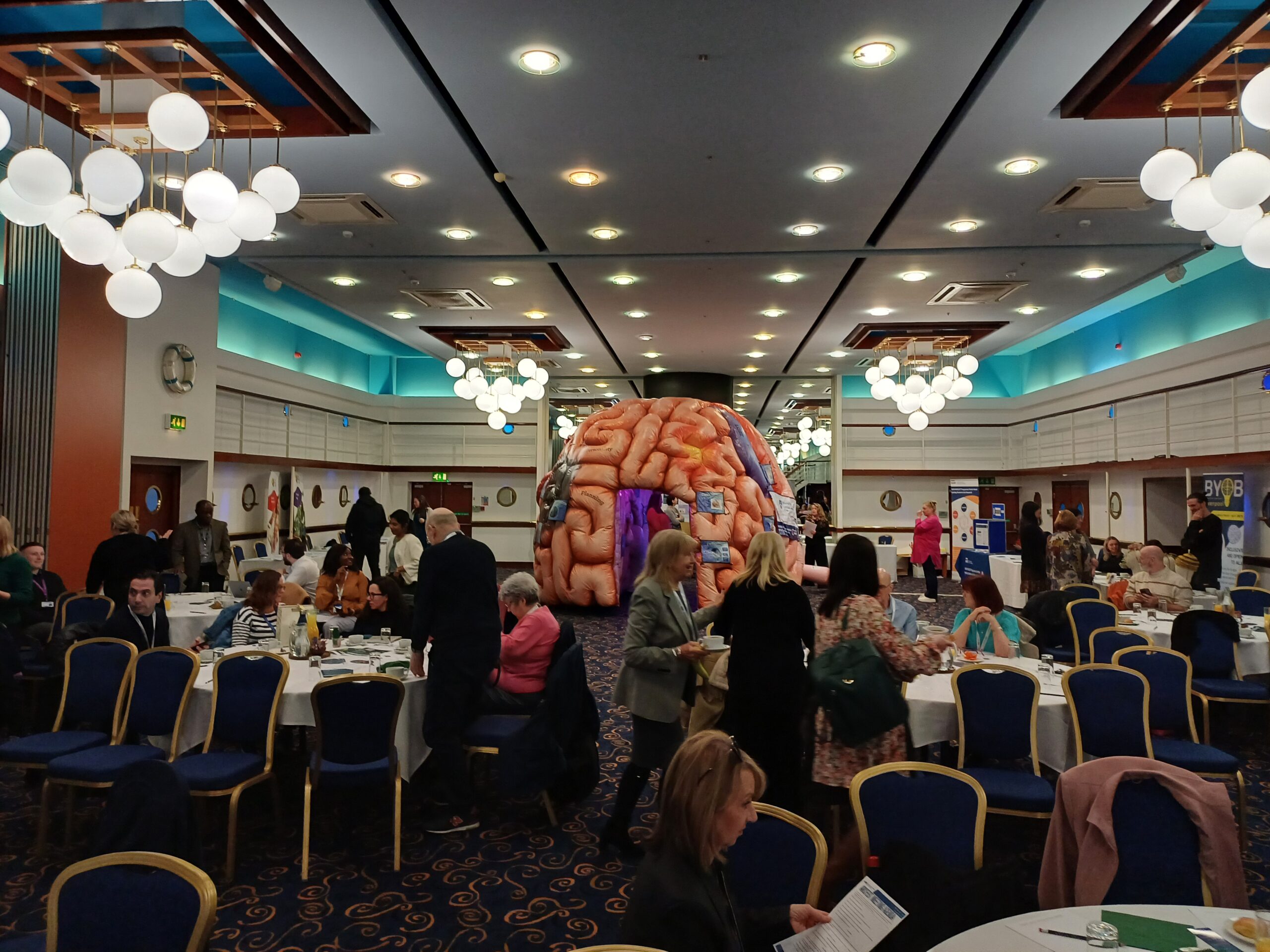Thinking in the brain box! ARC NWC brings together key players for north west event on Brain Health

ARC NWC recently hosted an insightful event at the Liner Hotel in Liverpool, bringing together clinicians, academics, public advisors, and academic experts to explore the latest research developments in brain health. The ship-themed venue provided a fitting backdrop for discussions focused on dementia, stroke, and the impacts of head injuries on brain health, with a 12-foot inflatable brain available for discovering just how it controls most organs in the human body!
The day began with an introduction by Professor Mark Gabbay, Director of ARC NWC, who highlighted the importance of understanding and improving brain health, considering existing inequalities in support and diagnosis. “We’re here to take a closer look at the issues affecting brain health and how we can work together to address these challenges,” Mark said.
One of the event’s key sessions, “A Brain Wave – What is Brain Health and Why is it Important?”, presented by Pippa Sargent of ARC NWC member organisation The Brain Charity and public advisor Sandra Smith, provided a strong foundation for understanding brain health. The session focused on how maintaining cognitive function throughout life is essential in preventing over 600 neurodegenerative conditions.
Additional highlights included ARC NWC’s Postdoctoral Research Associate Dr James Coleman Watson’s presentation on the importance of engaging the public in dementia research, and Dr Tom Faulkner, Assistant Psychologist at Mersey Care NHS Foundation Trust and an ARC NWC Intern, outlining his exploration of the alarming connection between sport-related head injuries and young onset dementia.
Public Advisor and Person-Centred Complex Care Co-Lead, Sandra Smith led a session that encouraged attendees to “exercise your brain” with practical, hands-on activities designed to show how brain health can be nurtured daily.
Stroke research was also a major focus of the day, with expert contributions from Professor Dame Caroline Watkins and Professor Elizabeth Lightbody. Caroline presented an overview of ongoing research into stroke and brain health, while Elizabeth introduced the COMMITS trial, a multi-centre study exploring the mechanisms behind motivational interviewing therapy after stroke. Their work underscored the importance of targeted interventions in improving outcomes for stroke survivors.
A particularly poignant insight into the real impact of brain health from a carer’s perspective, came from Alan Griffiths, a public advisor at ARC NWC, who shared his personal story in “Christopher and I: A Public Advisor’s Story”. His narrative brought a human element to the research, highlighting the critical role public advisors play in shaping the future of research priorities.
Georgina Carr, Chief Executive of the Neurological Alliance, offered a compelling presentation on the value of action in mitigating the impact of neurological disorders across the UK. Her session explored the urgent need for policy change, improved research funding, and collaborative efforts to improve outcomes for those affected by brain health disorders.
The event also highlighted international research with a session led by ARC’s Care and Health informatics theme with Dr. Pieta Schofield, who, alongside Sneha George and Professor Sarah Rodgers, introduced an important study on the safety of discontinuing valproate in young people with epilepsy. Their work contributes to a growing body of research aimed at ensuring the best possible treatments for neurological conditions while minimising risks.
An expert panel, with contributors from The Walton Centre, ARC NWC, Mersey Care, Brain Charity and Neurological Alliance discussed current trends and challenges in neurological research and the ongoing efforts to address health inequalities in both brain health diagnosis and care. Audience members were invited to ask questions and discuss the future priorities for research.
As the event concluded, attendees left feeling inspired and equipped with new knowledge about brain health. The day had sparked ideas and new collaborations which offer the potential to conduct and drive forward impactful research.
ARC NWC’s journey into brain health is far from over, and the future looks bright as we continue to work together to shape a healthier, more informed tomorrow.